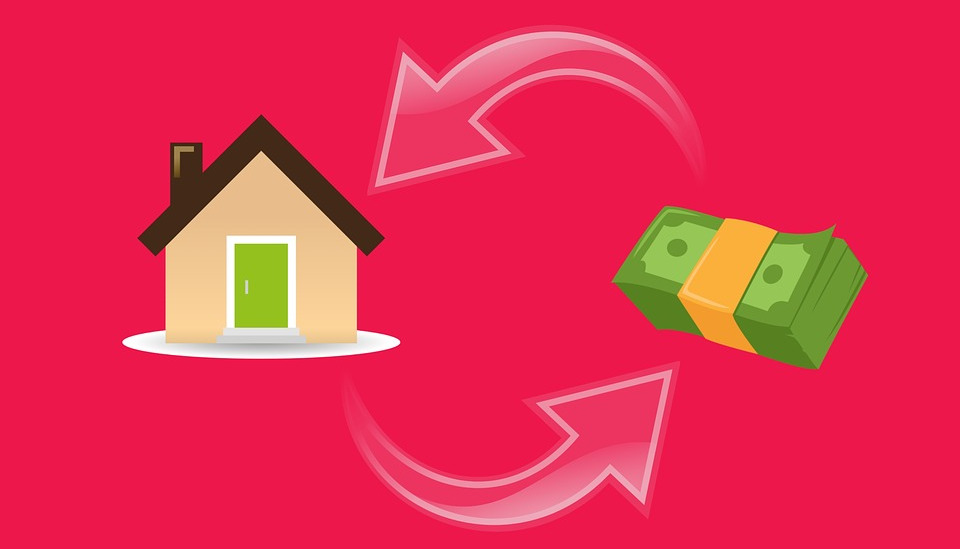When to Refinance Your Mortgage? 6 Step Guide

Over time, you might find that the mortgage deal you negotiated at the start isn't as beneficial as it once was, and getting another loan that will offer you a better deal may be the best option. In order to avoid the risk of falling into a trap where you can't afford your repayments, it's important to know the 6 situations when refinancing your mortgage is the best option for you.
1. The Option To Lower The Interest Rate
One of the most common reasons for refinancing your mortgage is to get a lower interest rate. At the moment, many homeowners are struggling with paying back what they owe because the interest rates are still so high - even though they'll be thankful that they have ways to get out of their current situation over time. Comparing the interest rates of different loans and using an online mortgage refinance calculator can help you determine if you can afford to refinanc your mortgage and reduce the interest rates. When looking into the potential loan, it's important to know the different types of rates, including fixed and variable rates, as well as the term of the new loan in order to ensure it's something that will work for you.
2. Paying Off The Loan Faster
Having a mortgage can sometimes feel like there's something standing over your head, with the fear that you'll never get out of debt. However, if you refinance your mortgage to make it faster to pay off, then this will help alleviate some of those fears. The amount of time you have left on your loan can be extended or shortened depending on what type of refinancing you do - for instance, an interest-only loan will mean you have more time before you need to pay off the loan in full. However, if you choose a repayment plan with monthly repayments that are set at a lower amount, then it can help reduce the overall cost of your loan faster. If you've found a loan that you think could work for you, be sure to take a look at your personal finances and see how they measure up to the conditions of the new loan.
3. Converting To An Adjustable Rate Mortgage
A lot of people take out a fixed-rate mortgage at first. However, as the circumstances change, you might find that an adjustable-rate mortgage is a better fit for you, so finding a loan that will let you switch types of mortgages can be a great way to refinance your mortgage. This is because adjustable-rate mortgages are not only more flexible in terms of when your payments are made, but it also means that the interest rate can go down over time, which helps reduce the amount of money you owe on the loan. If you find yourself in a situation like this, and a loan that works with your other financial commitments, then it can be a great way to reduce your interest rates and get back on track with the total amount of money you owe.
4. Paying Off Your Other Debts
By refinancing your mortgage, you may also be able to pay off debts that you have accumulated for other things, such as a home equity loan or a new college education. This will free up more cash in your pocket each month so that you can start saving up for retirement and making plans for the future with your family. When refinancing your mortgage, it's important to do the maths and see if you'll be able to afford to pay off more than just the principal and interest of your current loan with what you've got available every month. If not, then it might be a better idea for you to stick with your current deal until you're more financially stable.
5. No Open Lines Of Credit
It's important that you don't apply for any sort of credit when refinancing your mortgage because this can result in a large increase in your overall credit score. Of course, it's also important that you don't already have any open lines of credit because this can cause problems for the new loan you're applying for. If you want to find out if refinancing your mortgage will be a good idea, then it's important that you know how many and what types of loans and credit cards you currently have. If you don't have an open line of credit and don't see yourself getting one during the process, it might be a good time to look into refinancing your mortgage, provided other circumstances are beneficial as well.
6. Financial Stability
Finally, you want to ensure that you can keep up with the new loan. Having a steady job that pays well is great, but it's equally important that you can keep up with your other financial commitments. If you've found a new loan that works well within your budget, then this might be the right time to refinance. If you can confidently say that you can predict how your personal finances will develop during the term of the new loan, including potential unexpected situations such as medical emergencies or job loss, then refinancing might be the best thing you can do for yourself.

While everyone's personal situation is different, these are the 6 situations when refinancing your mortgage is the best option for you. Of course, as with any major life decision, it's important that you weigh up all of the pros and cons before committing to a new loan, and you might even want to consider talking to an accountant that can help you make an informed choice.